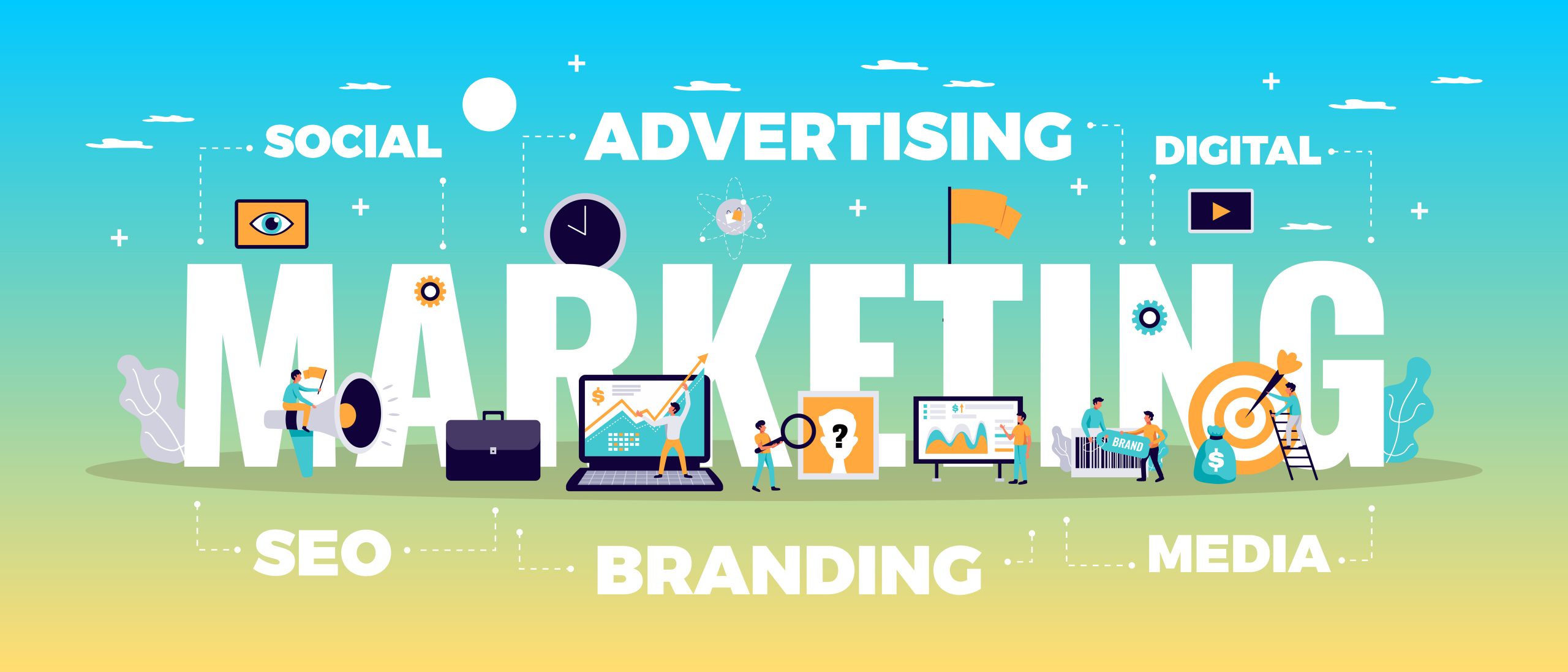
In today’s digital landscape, social media has become a powerful tool for businesses to enhance their online presence and increase their visibility. But did you know that it can also have a significant impact on your Google rankings? That’s right, leveraging the power of social media can help boost your website’s position in search engine results pages (SERPs) and drive more organic traffic to your site.
By incorporating social media into your overall SEO strategy, you can improve your website’s authority, credibility, and relevance in the eyes of Google. Platforms like Facebook, Twitter, and Instagram provide opportunities for businesses to engage with their audience, share valuable content, and generate backlinks to their website. These backlinks act as “votes of confidence” in the eyes of Google, signaling that your website is trustworthy and deserving of a higher ranking.
In this article, we will explore various strategies to unleash the power of social media and optimize your Google rankings. From creating shareable content to building a strong social media following, we will delve into the tactics that can help you stand out in the digital noise and drive more organic traffic to your website.
So, if you’re ready to take your SEO game to the next level, let’s dive in and discover how social media can turbocharge your Google rankings.
The importance of social media for SEO
Social media has become an integral part of our lives, with billions of people active on various platforms. From a business perspective, social media offers a unique opportunity to connect with your target audience, build brand awareness, and drive traffic to your website. But how does it impact your Google rankings?
The answer lies in the concept of social signals. Social signals refer to the engagement and interactions your content receives on social media platforms. When your content is liked, shared, and commented on, it sends positive signals to search engines like Google, indicating that your content is valuable and relevant. As a result, Google may reward your website with higher rankings in SERPs.
Additionally, social media provides an avenue for building backlinks, which are crucial for SEO. When other websites or users share your content on social media, it creates valuable backlinks to your website. These backlinks act as a vote of confidence, telling Google that your website is trustworthy and deserving of a higher ranking.
Leveraging social media to increase website traffic
One of the primary goals of SEO is to increase organic traffic to your website. Social media can play a significant role in achieving this goal. By leveraging the power of social media, you can drive targeted traffic to your website, resulting in higher engagement and conversions.
To harness the power of social media and increase website traffic, you need to create a strong presence on relevant platforms. Start by identifying the social media platforms where your target audience spends most of their time. Whether it’s Facebook, Twitter, Instagram, or LinkedIn, choose platforms that align with your target market.
Once you’ve identified the platforms, optimize your social media profiles by including relevant keywords, a compelling description, and a link to your website. This will not only make it easier for users to find and engage with your content but also improve your visibility in search engine results.
Additionally, make it easy for users to share your content on social media by incorporating social sharing buttons on your website. This will encourage visitors to share your content with their network, increasing the reach and visibility of your brand.
Tips for optimizing your social media profiles for SEO
Optimizing your social media profiles for SEO is crucial to maximize the impact of social media on your Google rankings. Here are some tips to help you get started:
1. Choose a username and handle that reflects your brand or business. Consistency across all platforms is essential for brand recognition.
2. Use relevant keywords in your profile descriptions, but make sure it reads naturally and doesn’t sound spammy.
3. Include a link to your website in your profile bio or about section. This will not only drive traffic to your website but also improve your website’s authority.
4. Use high-quality images and visuals that represent your brand. Visual content is more likely to grab attention and encourage engagement.
5. Engage with your audience by responding to comments, messages, and mentions. This not only shows that you value your audience but also increases the visibility of your brand.
Remember, the key to optimizing your social media profiles for SEO is to strike a balance between keyword optimization and providing value to your audience. Focus on creating a compelling and engaging profile that attracts your target audience while incorporating relevant keywords.
Creating shareable content for social media
Creating shareable content is essential for maximizing the impact of social media on your Google rankings. When your content is shared, it increases its reach and visibility, driving more organic traffic to your website. Here are some strategies to create shareable content:
1. Understand your audience: Research your target audience to understand their interests, pain points, and preferences. Tailor your content to resonate with their needs and desires.
2. Provide value: Create content that educates, entertains, or inspires your audience. Offer tips, insights, and practical advice that they can apply in their lives or businesses.
3. Use visuals: Visual content is highly shareable and attracts more attention on social media. Incorporate images, infographics, videos, and gifs to make your content more engaging and shareable.
4. Craft compelling headlines: A catchy headline can make a significant difference in whether your content gets shared or not. Use power words, numbers, and curiosity to grab attention and entice users to click and share.
5. Include social sharing buttons: Make it easy for users to share your content by including social sharing buttons on your website and blog posts. This will encourage visitors to share your content with their network, increasing its reach and visibility.
Remember, creating shareable content is not only about creating great content but also about promoting it effectively. Share your content across your social media platforms, engage with your audience, and encourage them to share it with their network.
Building a strong social media following
Building a strong social media following is crucial for maximizing the impact of social media on your Google rankings. A larger following means more engagement, shares, and backlinks to your website. Here are some strategies to build a strong social media following:
1. Consistency is key: Post regularly and consistently on your social media platforms. This will keep your audience engaged and help you build a loyal following.
2. Engage with your audience: Respond to comments, messages, and mentions. Engage in conversations, ask questions, and encourage your audience to share their thoughts and opinions.
3. Collaborate with influencers: Partner with influencers in your industry to reach a wider audience and increase your brand’s visibility. Influencers can help you gain credibility and attract more followers.
4. Run contests and giveaways: Encourage your audience to engage with your content by running contests and giveaways. This will not only increase engagement but also attract new followers.
5. Cross-promote your social media platforms: Promote your social media platforms across all your channels, including your website, blog, email newsletters, and other social media profiles. This will help you gain followers across different platforms and increase your overall reach.
Remember, building a strong social media following takes time and effort. Focus on providing value, engaging with your audience, and fostering meaningful connections to build a loyal and engaged following.
Engaging with your audience on social media
Engaging with your audience on social media is crucial for building a strong online presence and maximizing the impact of social media on your Google rankings. Here are some strategies to effectively engage with your audience:
1. Respond to comments: Reply to comments on your social media posts, blog posts, and other content. Show your audience that you value their input and appreciate their engagement.
2. Ask questions: Encourage your audience to share their thoughts and opinions by asking questions. This will not only increase engagement but also provide valuable insights into your audience’s preferences and needs.
3. Share user-generated content: Repost and share content created by your audience. This not only shows appreciation but also encourages others to engage with your brand and create content of their own.
4. Conduct polls and surveys: Use polls and surveys to gather feedback and insights from your audience. This will not only engage your audience but also help you make data-driven decisions.
5. Personalize your responses: Address your audience by name and personalize your responses whenever possible. This will make your audience feel valued and appreciated, fostering a stronger connection with your brand.
Remember, engagement is a two-way street. It’s not just about broadcasting your message, but also about actively listening and responding to your audience. By engaging with your audience on social media, you can build a loyal following and increase your website’s visibility in search engine results.
The role of social media in link building
Link building is an essential aspect of SEO, and social media can play a significant role in this process. When your content is shared on social media, it creates valuable backlinks to your website, signaling to Google that your website is trustworthy and deserving of a higher ranking.
To leverage social media for link building, focus on creating valuable and shareable content that naturally attracts backlinks. This can be in the form of blog posts, infographics, videos, or other types of content that provide value to your audience.
Additionally, actively engage with influencers, industry experts, and other websites in your niche. By building relationships with these individuals and sharing their content, you can increase the likelihood of them sharing your content and linking back to your website.
Remember, quality is more important than quantity when it comes to backlinks. Focus on creating valuable content and building relationships with relevant websites and influencers to earn high-quality backlinks that can positively impact your Google rankings.
Measuring the impact of social media on SEO
Measuring the impact of social media on your SEO efforts is crucial to understand what strategies are working and what needs improvement. Here are some metrics to track:
1. Website traffic: Monitor the amount of traffic your website receives from social media platforms. Compare this data over time to identify trends and patterns.
2. Engagement metrics: Track metrics such as likes, shares, comments, and mentions to measure the engagement levels of your social media content. This will help you understand what type of content resonates with your audience.
3. Backlinks: Monitor the number and quality of backlinks your website receives from social media platforms. This will give you insights into the impact of social media on your link building efforts.
4. SERP rankings: Monitor your website’s rankings in search engine results pages. Look for any correlation between your social media efforts and changes in rankings.
5. Conversion rates: Track the number of conversions, such as newsletter sign-ups, downloads, or purchases, that result from your social media efforts. This will help you understand the impact of social media on your bottom line.
By tracking these metrics, you can gain valuable insights into the impact of social media on your SEO efforts and make data-driven decisions to optimize your strategy.
Conclusion: Harnessing the power of social media for improved Google rankings
In conclusion, social media has the power to significantly impact your Google rankings and drive more organic traffic to your website. By incorporating social media into your overall SEO strategy, you can improve your website’s authority, credibility, and relevance in the eyes of Google. From creating shareable content to building a strong social media following, the strategies outlined in this article can help you stand out in the digital noise and boost your Google rankings.
Remember, social media is not a standalone solution but rather a complementary tool in your SEO toolkit. By integrating social media with other SEO tactics, such as keyword optimization, link building, and content creation, you can maximize the impact of social media on your Google rankings.
So, don’t underestimate the power of social media. Embrace it, engage with your audience, and unleash its potential to turbocharge your Google rankings. Start implementing the strategies outlined in this article, and watch as your website climbs the ranks and attracts more organic traffic than ever before.




